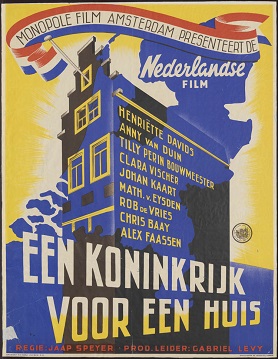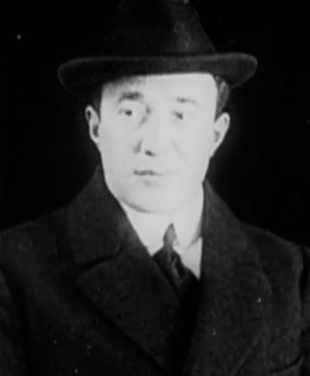The 12th César Awards ceremony, presented by the Académie des Arts et Techniques du Cinéma, honoured the best French films of 1986 and took place on 7 March 1987 at the Palais des Congrès in Paris. The ceremony was chaired by Sean Connery and hosted by Michel Drucker and Pierre Tchernia. Thérèse won the award for Best Film.
The 17th César Awards ceremony, presented by the Académie des Arts et Techniques du Cinéma, honoured the best French films of 1991 and took place on 22 February 1992 at the Palais des Congrès in Paris. The ceremony was chaired by Michèle Morgan and hosted by Frédéric Mitterrand. Tous les matins du monde won the award for Best Film.
The following is a list of winners of the Golden Calf for best actor/actress at the Nederlands Film Festival. From 2021 onwards the award became a gender-neutral award.

Philippe Muller is a French cellist.
Diamant (1916) is a 1916 Dutch silent film directed by Johan Gildemeijer.
The Devil in Amsterdam is a 1919 Dutch silent film directed by Theo Frenkel.

Helleveeg is a 1920 Dutch silent film directed by Theo Frenkel.
Kee en Janus naar Parijs is a 1924 Dutch silent comedy film directed by Alex Benno.
De Sensatie van de Toekomst (1931) is a Dutch film directed by Dimitri Buchowetzki and Jack Salvatori, released by Paramount Pictures, and based on the play Television by Howard Irving Young (1893-1952).
't Was één April is a 1936 Dutch film directed by Douglas Sirk and Jacques van Tol. It is a lost film.
De Familie van mijn Vrouw is a 1935 Dutch comedy film directed by Jaap Speyer.
Pygmalion is a 1937 Dutch film, based on the 1913 George Bernard Shaw play of the same title, directed by Ludwig Berger.

A Kingdom for a House or is a 1949 Dutch comedy film directed by Jaap Speyer. With almost 1.3 million admissions it is one of the most successful Dutch films of all time.
De Toverspiegel is a 1951 Dutch film directed by Willy van Hemert.

Rudolf Meinert was an Austrian screenwriter, film producer and director.
Jan Baptist Francken was supposed to be a painter from the Francken family and/or the son of Sebastian Vrancx, but is now considered to have been an error and to have never existed. The confusion was created by the many painters named Francken, some poor attributions, and a portrait by Anthony van Dyck of a certain Johannes Baptist Franck, aged 32, of whom nothing more is known. He is sometimes said to be the same as Hans Francken, another obscure member of the same family.
Willem Ormea (1611–1673) was a Dutch Golden Age painter known for his still lifes of subjects such as fish.

Onze Kunst van Heden was an exhibition held in the winter of 1939 through 1940 at the Rijksmuseum in Amsterdam. Due to the threat of invasion in the years leading up to World War II, the Netherlands' government stored many items from the Rijksmuseum's permanent collection. The resulting empty gallery space was utilized by contemporary Dutch artists to exhibit and sell their art. It was organized by the director of the Rijksmuseum Frederik Schmidt Degener. The show was open to all artists, with each artist allowed to enter four pieces. 902 artists exhibited 3,200 works of art in 74 rooms and cabinets of the Rijksmuseum.
„De kunstenaar kan in tijden van maatschappelijke benauwenis weinig positiefs doen om rampen af te wenden, maar wel kan hij door mede te helpen nationale uitingen op het eigenaardigst naar voren te brengen het gemeenschapsbesef versterken. Wanneer de belangstelling van het publiek uitgaat naar deze manifestatie, die in zulk een omvang in Holland nog niet gezien is, dan zal menige kunstenaar zich op zijn beurt gesterkt voelen".
"The artist can do little positive in times of social distress to avert disasters, but he can, by helping to bring out national expressions in the most idiosyncratic way, strengthen the sense of community. When the public is interested in this event, which has not yet been seen to such an extent in Holland, many artists will feel strengthened in turn."

Wanda Daniela Reisel Muller is a Dutch writer. Reisel was awarded the Anna Bijns Prize and her works has been nominated for other awards.

Everything for the Company is a 1935 Austrian comedy film directed by Rudolf Meinert and starring Oskar Karlweis, Felix Bressart and Otto Wallburg. Many of those involved in the film's production had recently fled from Nazi Germany. It was shot at the Schönbrunn Studios in Vienna. The film's sets were designed by the art director Artur Berger. A separate Dutch version De Vier Mullers was also produced, directed by Meinert and starring Johannes Heesters.
This page is based on this
Wikipedia article Text is available under the
CC BY-SA 4.0 license; additional terms may apply.
Images, videos and audio are available under their respective licenses.






